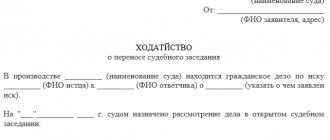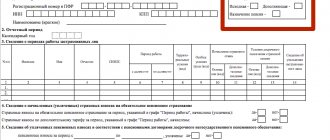In modern economic conditions, when concluding large transactions, including for state and municipal needs, a convenient financial instrument is used - a bank guarantee to ensure the execution of the contract.
A bank guarantee can be compared to insurance, which is paid by a financial institution in the event that the client does not fulfill contractual obligations related to payment. A bank guarantee is a convenient method of security that allows you to compensate for losses of one of the parties to a contract in the event of failure to fulfill obligations on the other side. Simply put, this is a document by which the bank undertakes to promptly repay the debt to the person to whom the money is due.
Those who intend to take part in a tender or make a large purchase are interested in a bank guarantee. The presence of a bank guarantee indicates the seriousness of intentions and integrity of the company.
Let's say a crushed stone quarry intends to purchase a crusher from the plant. But the plant will have a sufficient amount of money after the summer season. The manager turns to the manufacturer with a request to defer payment, guaranteeing payment with a bank guarantee. The plant agrees, understanding that in any case it will receive money for the crusher either from the quarry or from the bank.
Participants in the process
There are three parties to the procedure for issuing a bank guarantee:
- principal;
- beneficiary;
- guarantee.
Complex legal terms have a very clear definition:
- Principal is a client who applies to a credit institution for a guarantee and pays a commission for services. For example, an entrepreneur won a tender to repair a municipal road. When signing a contract, he is obliged to provide a guarantee that he will complete the work properly, in full and within the specified period. The entrepreneur who purchased the guarantee from the bank is the principal.
- The beneficiary is a company that is guaranteed to receive funds from the bank if the principal violates contractual obligations. If in the public procurement procedure the beneficiary is always the customer, then in other transactions there may be, in addition, the executor and the contractor, not only the buyer, but also the seller.
In the above example, the beneficiary is the municipality. If the entrepreneur does not meet the deadline, the city administration will contact the bank and receive financial compensation under the issued guarantee.
The beneficiary may be the organization performing the work under the contract. For example, the customer and the contractor signed a contract for the construction of a printing house. At the stage of signing the contract, the customer did not have enough money, so the contractor agreed to complete the work subject to deferment of payment for six months - under a bank guarantee. If the customer does not repay the debt within the specified period, the contractor will receive his money from the bank that issued the guarantee.
- Guarantor is a bank included in the register of the Ministry of Finance, which has issued a written obligation guaranteeing payment to the beneficiary in the event that the principal does not fulfill the terms of the agreement.
In addition to banks, any credit or commercial enterprises were added to the list of organizations entitled to issue independent bank guarantees in 2015. The guarantee began to be called independent, that is, independent of the obligations under the contract. As before, only banks are the guarantors when concluding contracts related to government procurement, customs and tax departments.
Requirements
The quality of goods sold under a supply or purchase agreement must comply with:
- The conditions specified in Article 469 of the Civil Code of the Russian Federation.
- Mandatory statutory requirements and regulations: GOST, technical specifications or hygienic standards.
- The criteria determined by the contractual relations of the parties, and in the absence of them, it is necessary that the product be suitable for use for the designated purposes.
Read more about product quality requirements here.
Established in the contract
Careful coordination of the parties’ ideas about the consumer properties of the purchase object when concluding an agreement is in the interests of both the buyer and the seller, which ultimately leads to a reduction in the risks of conflict situations during the acceptance and transfer of goods.
Key points determined by the agreement:
- Criteria for determining quality.
- The purposes for which the product is purchased.
- The condition of the used product and clearly indicated defects in the event of an agreed delivery of substandard quality.
Non-compliance with the characteristics and criteria that the parties agreed upon, in accordance with paragraph 1 of Art. 469 of the Civil Code of the Russian Federation, will be interpreted as the supply of goods of inadequate quality, which entails the possibility of claims from the buyer to the supplier in accordance with Art. 475 of the Civil Code of the Russian Federation.
New Product
In the contract, it is important to focus on the condition - a new product, indicating the brand, model and other identification features; the presence of such wording allows us to interpret the sale of used. products as the supply of goods of inadequate quality.
The parties may determine other criteria at their discretion, such as:
- operational and technical parameters;
- characteristics that determine safety, energy consumption parameters, production standards;
- compliance with the specified description or sample.
The understanding of quality can be determined by referring to the standards applied voluntarily by the parties.
For example:
- international standards;
- standards of organizations, etc.
When determining the parameters that determine quality in the contract, the parties must take into account that the established regulatory requirements may be mandatory.
Compliance of the product with the purposes of its use
Taking into account paragraph 2 of Art. 469 of the Civil Code of the Russian Federation, it is advisable to clearly indicate the purposes for which the product will be used . Although the buyer has the opportunity to communicate the purpose in various ways, specifying it explicitly in the contract will avoid disagreements in controversial situations. The name can also indicate the purpose of use and exclude other uses. For example: “seed onion”.
If the purpose is not specified in the agreement and the buyer cannot prove that the seller was notified of it at the conclusion of the contract, non-compliance with the actual purpose after purchase will not be grounds for recognizing the goods as being of poor quality.
Substandard or used product
If the contract identifies defects in a new or used product, the buyer does not have the right to make claims or demands for the specified defects. For example, such as:
- external flaws;
- degree of wear;
- date of manufacture, etc.
If a product is found to not comply with quality criteria and these features were not specified in the contract, the receiving party has the right to refuse to receive it. In this case, the buyer can accept the goods, but point out any deficiencies found in the accompanying documents. These actions will not mean that delivery with defects has been agreed upon, but will only indicate the fact of their presence.
Unspecified in the contract
Quality criteria and warranty period are not mandatory terms in the supply contract and, in their absence, are regulated by law.
General requirements
In a situation where the requirements for the quality of goods are not fixed in a contract or a separate regulatory document, one should be guided by Art. 470 Civil Code of the Russian Federation.
If the period for providing the guarantee is not explicitly defined by law or agreements, clause 1 of Art. 470 of the Civil Code of the Russian Federation defines it as a reasonable period during which the product can be used for its characteristic purposes, but not more than 2 years, if this does not contradict the law or contract.
The parties may agree on the provision by the supplier of additional guarantees, in addition to those established in clause 2 of Art. 470 Civil Code of the Russian Federation.
In addition to the conditions already mentioned in the article regarding the compliance of goals and deadlines for submitting demands, it is worth noting:
- Unless otherwise specified in the contract, the warranty or shelf life period is calculated from the date of delivery of the goods.
- The seller is liable, including after the end of the warranty period, but not more than 2 years from the date of transfer of the goods if the buyer can prove that the defects arose before the actual transfer, for example, a manufacturing defect.
- If the warranty period for a part of the product is shorter than the main one, the buyer has the right to claims related to individual components during the warranty period for the entire product.
- If a separate component has a warranty period longer than the main product, the buyer has the right to make claims regarding this component regardless of the expiration of the warranty for the main product.
- Unless recorded agreements provide otherwise, the warranty applies to all components of the product.
Mandatory conditions determined by regulatory documents
If there are legal requirements for the quality of goods, they are mandatory. The seller is obliged to ensure their fulfillment, while the terms of the contract that are contrary to such requirements are considered void (clause 4 of article 469 of the Civil Code of the Russian Federation).
Mandatory requirements may be regulated by the following documents:
- Sanitary and hygienic standards (Federal Law No. 52 of March 30, 1999, SanPiN 2.3.2.1078-01).
- State all-Russian standards (GOST, GOST R) - may include mandatory quality requirements.
- Russian technical regulations (Article , , Federal Law No. 184 of December 27, 2002).
- Regulations of countries included in the Customs Union (Federal Law No. 184 of December 27, 2002).
- Documents of the European Union, if the Government of the Russian Federation, the norms they define are recognized as mandatory on the territory of the Russian Federation.
- List of products subject to mandatory certification, approved by RF PP No. 982 dated 12/01/2009. In this case, the absence of such a certificate from an authorized organization for a product for which this document is required is recognized as a significant violation (is a certificate of origin of goods required?).
The parties can agree and establish higher requirements for the quality of goods than those provided for by mandatory legislative norms (clause 4 of the Civil Code of the Russian Federation 469).
One of the most important characteristics of a product is its quality. Therefore, we have prepared for you a lot of useful materials on this topic:
- How is the product examined?
- Is it possible to check authenticity using a barcode?
- Everything you need to know about quality products.
- Documents confirming quality and factors that form and maintain it.
Bank guarantee conditions
Regardless of whether the bank guarantee is issued on paper or is an electronic bank guarantee, the requirements for the document based on Law No. 44-FZ are the same. The document must contain:
- The date of issue and the period during which the agreement remains in force.
- Legal name of the organizations participating in the process.
- The amount of the amount payable by the guarantor, or the procedure for determining and calculating this amount.
- Obligations of the principal secured by a guarantee.
- The guarantor's obligation to pay a penalty in case of late payment.
- Conditions under which money must be paid.
Only if all conditions are met is the guarantee valid. To avoid receiving a BG refusal from the bank, you must carefully read the wording of the document drawn up by the credit institution.
Consumer loan in cash from Raiffeisenbank - up to 2 million for 5 years!
Apply now
Additional terms
Document drawn up:
- on paper must be signed, sealed, stitched, and the sheets must be numbered;
- on electronic media, must be signed with an electronic signature by a person authorized by the bank.
The bank guarantee must be entered into the register of bank guarantees located in the Unified Information System (UIS). While the UIS is operating in test mode, the official website is used to post information - www.zakupki.gov.ru.
Conditions for government procurement
If the document is used when concluding government contracts, the following conditions are considered mandatory:
- The guarantee issued to the customer by the bank must be irrevocable. That is, after concluding a contract, it is impossible to terminate the contract with the bank or make changes to the document.
- The guarantor bank undertakes to pay a penalty for each day of failure to meet payment deadlines in the amount of 0.1% of the total guarantee amount.
- The bank's obligation to repay the debt is considered fulfilled from the time the money is credited to the customer's current account.
- The winning bidder, after concluding a contract, enters into an agreement with the bank to provide a bank guarantee for obligations on the basis of the concluded government contract.
- The costs associated with the transfer of money are borne by the guarantor bank.
The beneficiary has the right to stipulate that if the amount is delayed for a certain time, he can write off the money from the bank account without the owner’s order. If the bank does not take into account additional requirements and does not include them in the guarantee, the participant will not be allowed to trade.
Documents that must be attached to the request for payment of BG
Simultaneously with the requirement to repay the debt obligation, the beneficiary sends to the bank a package of documents consisting of:
- reasonable calculation of the amount;
- a payment order indicating that the beneficiary has returned the advance payment to the principal - if the return of the advance payment is secured by a guarantee;
- a document confirming the fact of the occurrence of a warranty case;
- a document confirming the authority of the official who signed the document recording the needs.
It is prohibited to include in a bank guarantee:
- Requirements to provide the guarantor bank with: court decisions proving non-fulfillment of obligations;
- contract execution report;
- additional documents not included in the mandatory List under 44-FZ.
Warranty and non-warranty cases
In the opposite situation, when the warranty period for a component product is longer than the warranty period for the main product, the consumer has the right to make claims provided that defects in the component product are discovered during the warranty period for this product, regardless of the expiration of the warranty period for the main product. Warranty obligations are fulfilled in relation to products purchased in Russia.
Thank you for your conscientious work and we look forward to further cooperation. We recommend the team of the First Tom printing house as responsible and high-quality performers. Thank you for your work! They did everything perfectly, quickly and efficiently. It's a pleasure to work with you.
11 days have passed since the purchase of the boots. The soles are cracked. Can I return the money if the exchange is not interesting?
Shouldn’t they accept the car on the day of the breakdown? With all the reports drawn up, with stamps, signatures, etc., and not send “come back in a couple of weeks, then we’ll accept you.”
Shops and supermarkets are reaching a new level of trade, becoming a kind of mousetraps and labyrinths with well-placed traps. Stores use a whole range of tricks, leading consumers to make many spontaneous and unnecessary purchases.
The warranty period is understood as the period during which, in the event of a defect in the product (work), the manufacturer (performer), seller, authorized organization or authorized individual entrepreneur, importer are obliged to satisfy the consumer’s requirements.
The buyer has the right to return the faulty product using the provisions of the Law “On Protection of Consumer Rights” No. 2300-1 of 02/07/1992. This document regulates the return of goods under warranty and provides for the period of such possibility.
Kinds
Types of bank guarantees are divided depending on the final goal of the recipient:
- Tender is used in government procurement and is regulated by laws: No. 44-FZ and No. 223-FZ, guaranteeing compliance by the participant with the terms of the competition and fulfillment of their obligations.
- The payment card is used when receiving an installment payment, guaranteeing payment in case of violation of deadlines or debt on the part of the debtor.
- Customs is used for customs clearance of goods, guaranteeing payment in situations established by tax legislation.
- Fulfillment compensates for the financial losses of the customer in the event that the contractor fulfills the terms of the contract in bad faith.
- A chargeback guarantees payment to the lender when the borrower owes money.
General provisions
Kia doesn't just sell cars that look good. We want our customers to enjoy them for many years to come. We use the latest engineering developments to design and assemble cars, and you will be able to appreciate their advantages every time you get behind the wheel of your KIA. We are truly proud of the quality of our cars and that is why we offer some of the most comprehensive warranty conditions of any car brand in Russia. A 5-year warranty applies to KIA cars purchased from the official dealer of Kia Motors Russia and CIS LLC and used in the Russian Federation. Detailed warranty conditions are specified in the Service Book and the vehicle purchase and sale agreement when purchasing a vehicle from an official dealer.
Service Book and Warranty Terms
If there are discrepancies, the warranty conditions for KIA cars set out in the Service Book, which the owner received when purchasing a KIA car from an official dealer, take precedence.
Dealer
The decision to classify each specific case as a warranty case is made by official dealers on their own and under their own responsibility without the consent of Kia Motors Russia and CIS LLC. An official KIA dealer makes a decision in accordance with the provisions of the KIA warranty policy, as well as on the basis of data on the conditions and operating mode of each specific vehicle.
What is covered by the warranty
KIA warrants that your new vehicle will be free from defects in material or workmanship. The official dealer of Kia Motors Russia and CIS LLC is ready to perform any repair using new or refurbished parts to fix any problem covered by the warranty, free of charge for you. Any parts replaced during warranty repairs are covered by the warranty only until the vehicle's warranty expires.
Basic guarantee
For the main elements of KIA vehicles operated in Russia, except for specific and specially specified ones, the warranty period from the date of sale to the first Owner is 60 months or 150,000 km (whichever comes first).
Accumulator battery
The warranty period for the original battery (installed by the Manufacturer) is 6 months from the date of sale of the vehicle without mileage limitation. The warranty period for the battery of the ERA-GLONASS system (installed by the Manufacturer) is 36 months from the date of sale of the vehicle without mileage limitation.
Recharging the air conditioner with refrigerant
The manufacturer guarantees that the refrigerant charge of the air conditioner will be sufficient for 6 months from the date of sale of the vehicle without mileage limitation. In case of failure of elements of the air conditioning system due to the fault of the Manufacturer, refilling the air conditioner is covered by the warranty.
Car tires
The warranty for car tires originally installed on the vehicle is provided by the manufacturer. If you have a claim regarding your tires, contact your dealer who will provide you with the information you need to file a claim with the tire manufacturer.
Optional equipment
The warranty for additional equipment purchased from a dealer is provided by its manufacturer. In the event of a claim, contact your dealer, who will provide you with the necessary support and service in accordance with the warranty policy of the original equipment manufacturer.
Software
Due to the complexity of computer software and global positioning systems, the Manufacturer does not warrant that the operation of the software will be uninterrupted or error-free, or that the information provided by the software will be error-free, including the User's current location, road network, its availability and condition or presence of settlements.
Audio/audio-video navigation system
The warranty for the audio/audio-video navigation system installed on the vehicle is specified for a period of 36 months or 60,000 km, whichever occurs first.
Telematics device (only for KIA RIO)
The warranty for the telematics device installed on the vehicle is 12 months without mileage limitation.
Spare parts
The warranty for original KIA spare parts replaced during commercial repairs is 12 months or 20,000 km, whichever comes first.
Advantages
Although a bank guarantee involves costs, clients benefit from using it. First of all, because this financial instrument allows:
- do not withdraw funds from circulation;
- do not provide collateral or surety.
The guarantee allows the beneficiary to be confident that he will receive the money promptly and without red tape, without entering into a dispute with the principal. It is enough to fulfill the only condition - to submit the necessary package of documents.
The guarantee encourages the contractor to fulfill his obligations in a high-quality and timely manner. It is a confirmation of the responsibility and financial viability of the performer.
Supplier and manufacturer warranty periods
Any product, no matter what industry it is from - it could be food, or it could be equipment, has a certain guarantee when released at the factory. For example, if it is food, then the expiration date is indicated on it. If you notice that, subject to the conditions specified on the packaging, the food still spoils ahead of schedule, you can safely contact the manufacturer; by law, he is obliged to reimburse you for all the money spent. Warranties provided by factories producing equipment have a longer period. In such guarantees, the manufacturer promises that the equipment and its parts will not break during operation. Most often, the manufacturer's warranty implies the replacement of a part or sample of equipment absolutely free of charge.
The Supplier, simultaneously with the delivery of the goods, is obliged to provide its guarantee (the Supplier's guarantee) for this product. The validity period of such a guarantee must be no less than the validity period of the manufacturer’s warranty of the product (at least months from the date). 10.3. Organization of warranty service during the warranty period of the supplied goods is carried out on the following conditions: 10.3.1.
During the warranty period, the Supplier undertakes at its own expense to carry out the necessary repairs and eliminate defects in accordance with the requirements of current legislation. 10.3.2. Warranty service for the goods is carried out by the Supplier with a visit to the installation site of the equipment within St. Petersburg within 24 hours from the receipt of the Customer’s application.
The first thing a consumer is interested in when purchasing a product is the warranty and service life. It is their presence that speaks about the quality of the product. Warranty obligations are specified in the acts of the laws of the Russian Federation.
The regulations state what a manufacturer or seller must do when selling a product. Very often, the buyer cannot protect his rights after receiving a low-quality item. We are talking about the client’s ignorance of basic laws.
Unscrupulous sellers often take advantage of this. Before purchasing a product, ask the seller for a warranty card. You can read about this in articles 18 and 29 of the Law “On Protection of Consumer Rights”.
The most important law, which specifies the conditions for establishing a guarantee and fulfilling its provisions, is Article 5 No. 2300-1 of the Civil Code of the Russian Federation. Please note that the purpose of the guarantee is not the responsibility of the manufacturer or distributor, but their right, which they may not use.
Despite this, reputable companies and factories, in order to gain the trust of their customers, use this right and set a warranty period. Thus, the manufacturer assumes the responsibility to eliminate product defects or replace its components if the warranty period has not expired and the problem was not the fault of the buyer.
If the consumer submits all the necessary documents, he does not have the right to refuse the repair or replacement service. In the event that the terms of the guarantee are not met, the client may file a claim in court.
Sometimes the selling and buying parties are different entities. Then the period determined by the seller or manufacturer is taken into account. After all, only they are given the right to establish and adjust warranty periods.
In accordance with clause 7, clause 5, art. The seller who offers a product or service for purchase can independently establish a guarantee. This is possible even if the manufacturer has not undertaken any obligations in relation to its product.
If the warranty period is determined by the manufacturer itself, the seller has the right to increase it, but not reduce it in any way. When making a transaction, the buyer can trust both the manufacturer’s and the seller’s guarantees. In any case, request documentary evidence of the guarantee.
How the guarantee works
Providing a bank guarantee
Acting as a guarantor, the bank risks finances. After all, having transferred the amount under the guarantee, the bank may not compensate for its losses, due to the fact that the principal, having found himself in a difficult financial situation, will not be able to return the guarantee amount in full.
To protect itself, the bank has the right to request security from the contractor in the form of:
- real estate;
- vehicle;
- equipment;
- goods;
- values.
A guarantee from another financially wealthy company or a trustworthy entrepreneur can serve as a guarantee of debt repayment. Most often, collateral is required if the executor's financial history appears unreliable.
The collateral will remain unclaimed by the bank if the contract is successfully completed and the guarantee will not need to be paid. If the terms of the contract are violated and the bank compensates the customer’s losses with a guaranteed amount, then the contractor is forced to return a certain amount of money to the bank or give a deposit to pay off the debt.
A reasonable question arises: why can’t the collateral be provided directly to the beneficiary and not issue a guarantee? First of all, because not all beneficiaries, due to objective reasons, are ready for lengthy legal proceedings and interactions with the institution of bailiffs. And banks have a staff of employees ready to work with collateral and collect debts.
Supplier's warranty obligations
The requirements for establishing expiration dates are contained in: - in the technical regulations of the Russian Federation, adopted in accordance with the Federal Law of December 27, 2002 No. 184-FZ “On Technical Regulation” (in accordance with the provisions of clause 3 of article 7 of the Law, clause 8 of the letter Rospotrebnadzor dated 03/07/2006 No. 0100/2473-06-32 “On clarification of certain provisions of the current legislation”); - in the technical regulations of the member states of the Customs Union, as well as documents of the European Union, if the requirements contained therein were introduced as mandatory by the Government of the Russian Federation before the date of entry into force of the technical regulation in accordance with clause 6.2 of Art. 46 of the Federal Law of December 27, 2002 No. 184-FZ “On Technical Regulation”; — in the technical regulations of the Customs Union. Examples of types of goods for which a shelf life is established: - fat and oil products (based on clause. If the contract does not contain a procedure for determining the compliance of the supplied goods with the customer’s needs, then all that the supplier is obliged to do is supply the goods suitable for the purposes for which the goods are such type is usually used. If we are talking about a contract for the performance of work or for the provision of services, then the contractor/performer will accordingly have to perform work/provide a service that meets the requirements usually imposed for work and services of this kind. An exception to this rule is cases when certain laws establish mandatory requirements for certain categories of procurement items (examples of such laws include the Federal Law of December 27, 2002 No. 184-FZ “On Technical Regulation”, Federal Law of January 2, 2000 No. 29-FZ “On Quality and Safety food products").
Important
It is advisable to include in the text of the draft contract a condition that the supplied goods must be new at the time of delivery. Moreover, a similar requirement contains clause 7, part 1, art. 33 of Law No. 44, according to which the customer, when describing the procurement object in the procurement documentation, must be guided by the following rules: “the supplied goods must be new goods (goods that have not been used, under repair, including those that have not been restored, whose components have not been replaced or consumer properties have not been restored) unless otherwise provided by the description of the procurement object.” Here you should pay attention to the fact that this requirement is a requirement for the customers’ description of the procurement object, and not directly for the product supplied under the contract.
Stages of registration
Choice of guarantor
The principal, based on his own ideas, selects a guarantor bank, taking into account the wishes of the beneficiary. There are several solutions, you can:
- contact a bank where a current account has already been opened;
- choose the appropriate one on the website www.zakupki.gov.ru;
- contact the services of a broker.
Compare the terms of bank guarantees in banks in your city
Work with documents
Having chosen a bank, you must request a list of documents required to obtain a bank guarantee. Each credit institution compiles its own list.
Consideration of the application
The bank, having received an application for a guarantee and the necessary package of documents, will make a decision within a certain period of time - from several hours to several days. In case of a positive decision, the applicant is offered:
- pay the invoice for the commission;
- enter into a contract.
Conclusion of an agreement
Before the guarantee is issued, the guarantor and the principal enter into an agreement indicating:
- warranty terms;
- the cost of commission for services provided by the bank;
- beneficiary company.
Bank guarantee cost
The next stage is payment of the bank guarantee. As a rule, the commission payment for issuing a document averages from 2.5 to 5 percent of the amount. The cost is affected by:
Cash loan from 5.5% for any purpose
Apply now
- the length of the document's validity period;
- the amount of the guarantee amount;
- degree of payment risk.
Issuance of a bank guarantee
The guarantee comes into force from the moment it is issued to one of the participants in the process. The beneficiary receives the document through the intermediary of the principal or directly from the guarantor bank.
Determined by whom?
The quality guarantee is established by the Russian Civil Code, the manufacturer or supplier (seller), and for some product groups - by mandatory regulatory documents on the territory of the Russian Federation.
Taking into account judicial practice, the buyer, if a transaction is carried out through an intermediary, cannot rely on the terms of the guarantee provided by the manufacturer. Responsibility for product quality lies entirely with the seller and in controversial situations, claims are brought against him. This standard applies to products used in business activities. Retail trade is regulated differently, in particular by the law “On the Protection of Consumer Rights”.
Using a bank guarantee
Request to pay for warranty
In case of failure to fulfill contractual obligations on the part of the principal, the beneficiary only needs to send a demand to the guarantor bank, attaching the necessary documents. The bank is obliged to make payment regardless of the fact that the obligation is actually fulfilled or the executor claims that it has been fulfilled.
Actions of the bank after receiving the guarantee
After the bank receives the request, it:
- notifies the principal by sending a copy of the request and documents;
- examines the requirement and the correctness of document execution;
- transfers money.
Reimbursement of amounts paid to the bank under the guarantee
The principal is obliged to return to the bank the money that was paid to the beneficiary under the guarantee only if the beneficiary filled out the documents correctly.
Beneficiary liability
If the beneficiary misled the bank about the improper performance of the contract by the principal and demanded to pay under the guarantee, the principal has the right to demand compensation.
Providing a guarantee of product quality.
For a product (work) intended for long-term use, the manufacturer (performer) has the right to set a service life - the period during which the manufacturer (performer) undertakes to provide the consumer with the opportunity to use the product (work) for its intended purpose and bear responsibility for significant deficiencies arising from it. guilt. The manufacturer (performer) is obliged to establish the service life of durable goods (work), including components (parts, assemblies, assemblies), which after a certain period may pose a danger to the life and health of the consumer, cause harm to his property or the environment. The list of such goods (works), approved by the Government of the Russian Federation, is here.
Manufacturer's liability for selling goods of inadequate quality
What should I do if the product stops functioning or is found to be defective while under warranty? Submit requirements to the seller related to the elimination of defects, or exchange of the product for a quality product. To do this, be sure to refer to Art. 18 of Law No. 2300-1. If repairs have been carried out, the consumer must be issued an additional warranty document. This is also discussed in the above article.
Do not forget that you can contact the seller with claims even when there is no warranty card for the product. The procedure is possible if the purchased product does not meet the quality standard.
Such demands are allowed to be made for 2 years from the date of receipt of the product by the buyer. There is a group of goods that, by law, can be disputed after the established deadline.
The seller must provide the client with a new high-quality item that meets all the criteria and parameters established by the standards.
Determining the origin of defects in a purchase
Request the seller to carry out an exchange procedure if defects or any flaws are found on the product. For the case to be successful during legal proceedings, prove that the defect in the item appeared before the purchase, and the culprit is the seller or manufacturer.
If the product has a warranty period, the responsibility for fulfilling its terms falls on the store or the manufacturer. The purchase will not be accepted back if the cause of the malfunction or defect was improper use, transportation or storage of the item.
If an individual or legal entity that has assumed warranty obligations proves its innocence, then it has the right to refuse to provide services to the consumer in relation to the defective product.
The Russian judicial system is formed in such a way that it is designed to protect, first of all, the rights of the buyer. Thus, the defendant must provide significant evidence that he is not to blame for the defect in the product.
If the seller cannot do this, then he will have to reimburse all costs associated with repair work or return the money.
The concept of a warranty case
A warranty case is a failure by the contractor to fulfill its obligations to maintain quality. If a consumer complains about the quality of a product, the store will first try to send the faulty item for repair, because repair is more profitable than a refund.
But the seller has no right to force the elimination of defects. If the owner agrees, the item is sent to the service center.
The manufacturer most often does not have its own service, since this is a costly enterprise, so an agreement is concluded between the center and the manufacturer. In this case, the authorized service center is responsible for repairs, paying for all operations at its own expense.
The manufacturer makes payments to the service, while checking whether the case was covered by warranty or not.
Non-warranty cases are situations in which the manufacturer is not responsible for the breakdown:
- Violation of operating rules.
- The owner independently tried to make repairs or disassemble the product.
- Inappropriate consumables were used during use.
- The products were imported into the Russian Federation illegally.
In such situations, you should not count on reimbursement of costs, because The blame falls on the consumer.
Advantages of a bank guarantee at Sberbank
- A bank guarantee from Sberbank is the most reliable way to guarantee obligations.
- For most customers, Sberbank’s guarantee is a strong argument for taking part in a transaction or contract.
- Sberbank can provide guarantees from first-class banks against a counter-guarantee from Sberbank, if required.
- All documents when issuing a guarantee comply with the necessary requirements that apply to the production of securities. The forms have many degrees of protection and their own unique number.
- The fastest execution of guarantees for even the most complex contracts.
- A small list of required documents, which significantly reduces your time.
- Low commission and no additional payments.
- Long warranty period.









